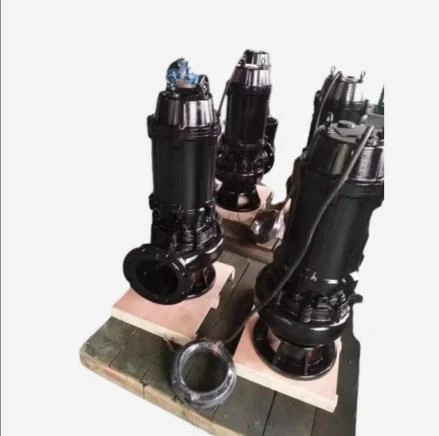TEL:
+86 13120555503
Welsh
- Afrikaans
- Albanian
- Amharic
- Arabic
- Armenian
- Azerbaijani
- Basque
- Belarusian
- Bengali
- Bosnian
- Bulgarian
- Catalan
- Cebuano
- Corsican
- Croatian
- Czech
- Danish
- Dutch
- English
- Esperanto
- Estonian
- Finnish
- French
- Frisian
- Galician
- Georgian
- German
- Greek
- Gujarati
- Haitian Creole
- hausa
- hawaiian
- Hebrew
- Hindi
- Miao
- Hungarian
- Icelandic
- igbo
- Indonesian
- irish
- Italian
- Japanese
- Javanese
- Kannada
- kazakh
- Khmer
- Rwandese
- Korean
- Kurdish
- Kyrgyz
- Lao
- Latin
- Latvian
- Lithuanian
- Luxembourgish
- Macedonian
- Malgashi
- Malay
- Malayalam
- Maltese
- Maori
- Marathi
- Mongolian
- Myanmar
- Nepali
- Norwegian
- Norwegian
- Occitan
- Pashto
- Persian
- Polish
- Portuguese
- Punjabi
- Romanian
- Russian
- Samoan
- Scottish Gaelic
- Serbian
- Sesotho
- Shona
- Sindhi
- Sinhala
- Slovak
- Slovenian
- Somali
- Spanish
- Sundanese
- Swahili
- Swedish
- Tagalog
- Tajik
- Tamil
- Tatar
- Telugu
- Thai
- Turkish
- Turkmen
- Ukrainian
- Urdu
- Uighur
- Uzbek
- Vietnamese
- Welsh
- Bantu
- Yiddish
- Yoruba
- Zulu
Telephone: +86 13120555503
Email: frank@cypump.com
Chw . 16, 2025 12:45 Back to list
basement sewer pump
The basement sewer pump is often an unsung hero in residential plumbing systems, diligently working behind the scenes to prevent potential disasters. These devices are essential in homes where the basement is located below the main sewer line, which means the natural gravitational pull used in conventional plumbing systems is not effective.
Routine maintenance is another aspect where expertise enhances reliability and longevity. A simple checklist can be employed monthly or quarterly inspect the power cord, check for any debris obstructing the pump or float switch, and perform a test run to ensure it's activating correctly. These tasks prevent unexpected failures and head off any issues before they demand costly repairs. Moreover, advancements in pump technology are worth noting. Some models now offer smart features, allowing homeowners to monitor pump performance through mobile apps, receive alerts for any malfunctions, and even integrate with smart home systems. These modern solutions provide peace of mind, especially for those frequently away from home, without sacrificing performance or reliability. Manufacturers often hold tremendous authority in terms of guidance on product selection. Brands that offer extensive warranties, responsive customer service, and a track record of positive reviews provide added reassurance. They typically provide detailed installation manuals and customer support lines to handle inquiries—both invaluable for new users. Ultimately, leveraging expertise, acknowledging the product's importance, and consistent maintenance establish a reliable basement sewer pump system. A well-chosen pump not only protects the home from water damage and sewage backup but also contributes to a smoothly running household. When homeowners bring these elements together, they create an environment safeguarded against plumbing catastrophes, regardless of external conditions or system demands.


Routine maintenance is another aspect where expertise enhances reliability and longevity. A simple checklist can be employed monthly or quarterly inspect the power cord, check for any debris obstructing the pump or float switch, and perform a test run to ensure it's activating correctly. These tasks prevent unexpected failures and head off any issues before they demand costly repairs. Moreover, advancements in pump technology are worth noting. Some models now offer smart features, allowing homeowners to monitor pump performance through mobile apps, receive alerts for any malfunctions, and even integrate with smart home systems. These modern solutions provide peace of mind, especially for those frequently away from home, without sacrificing performance or reliability. Manufacturers often hold tremendous authority in terms of guidance on product selection. Brands that offer extensive warranties, responsive customer service, and a track record of positive reviews provide added reassurance. They typically provide detailed installation manuals and customer support lines to handle inquiries—both invaluable for new users. Ultimately, leveraging expertise, acknowledging the product's importance, and consistent maintenance establish a reliable basement sewer pump system. A well-chosen pump not only protects the home from water damage and sewage backup but also contributes to a smoothly running household. When homeowners bring these elements together, they create an environment safeguarded against plumbing catastrophes, regardless of external conditions or system demands.
Share
Next:
Latest news
-
Heavy-Duty Mining Sludge Pumps - Wear-Resistant Slurry Handling
NewsAug.02,2025
-
Horizontal Split Case Pump with GPT-4 Turbo | High Efficiency
NewsAug.01,2025
-
ISG Series Pipeline Pump - Chi Yuan Pumps | High Efficiency, Durable Design
NewsAug.01,2025
-
Advanced Flue Gas Desulfurization Pump with GPT-4 Turbo | Durable & Efficient
NewsJul.31,2025
-
ISG Series Vertical Pipeline Pump - Chi Yuan Pumps | Advanced Hydraulic Design&Durable Construction
NewsJul.31,2025
-
ISG Series Vertical Pipeline Pump - Chi Yuan Pumps | Energy Efficient & Low Noise
NewsJul.31,2025










